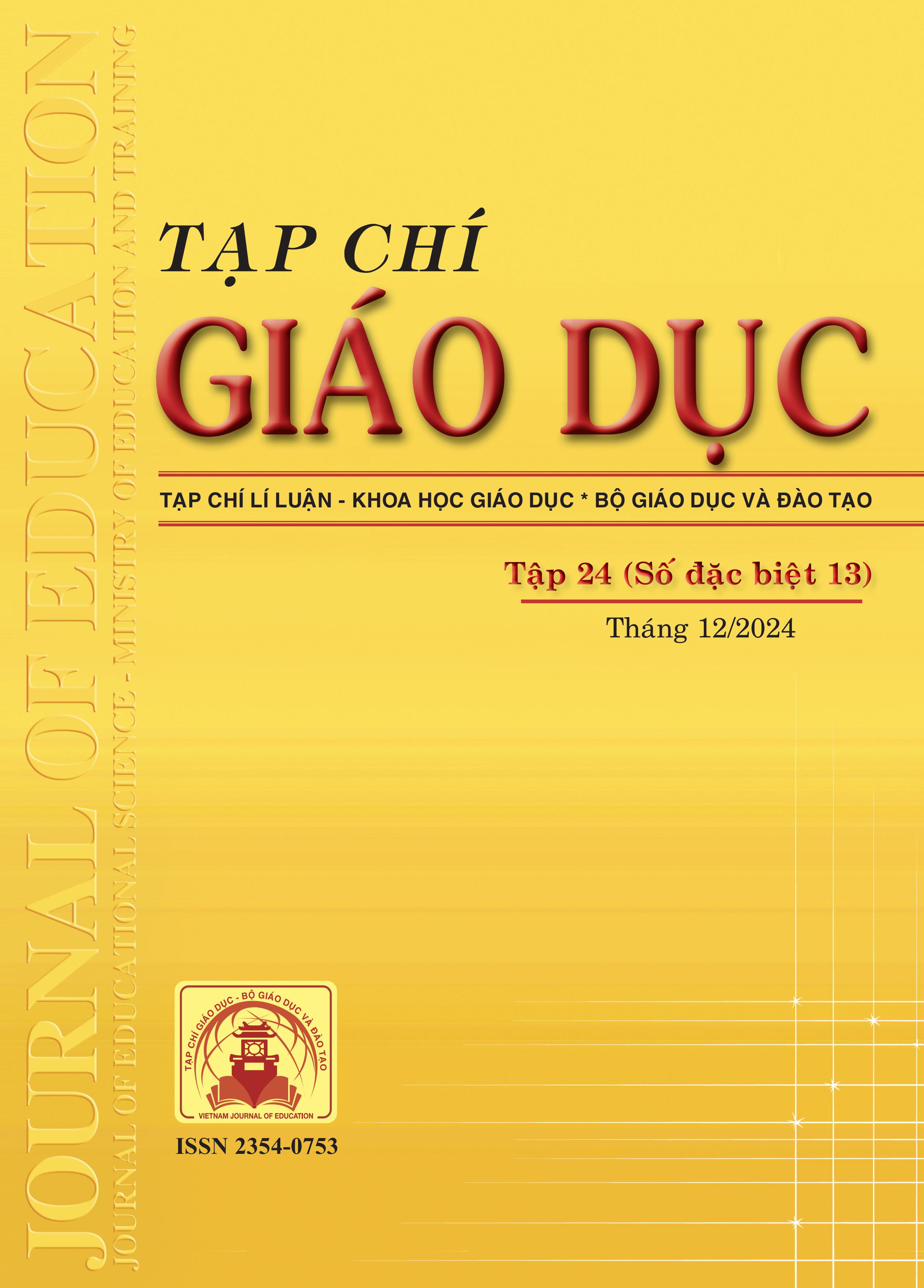Phát triển kĩ năng tư duy phản biện cho học sinh trong dạy học chủ đề “Con người và sức khỏe” (Tự nhiên và Xã hội 2)
Tóm tắt
Critical thinking skill is a very necessary skill for the development of each individual in the current information explosion era. The formation and development of critical thinking for students should be carried out from a young age with a simple level of training and linked to the lesson content. Through the training process, students are given the opportunity to make judgments, search for documents, evidence and give explanations in a simple but appropriate, scientific and logical way. At the same time, through the training process, students know how to evaluate, self-evaluate and adjust their judgments and learning results. This article proposes skills and manifestations of skills in critical thinking ability suitable for primary school students. In addition, the article also proposes a 5-step process of designing and organizing teaching activities to train critical thinking skills and applying that process to designing teaching activities on the topic “Human and Health” - Natural and Social Sciences for grade 2. The research results have been pedagogically tested and initially confirmed the effectiveness of the topic.
Tài liệu tham khảo
Berk, L. E. (2013). Çocuk gelişimi (B. Onur. ve A. Dönmez, Çev.). Ankara: İmge. Chantal, P. L., & Markovits, H. (2017). The capacity to generate alternative ideas is more important than inhibition for logical reasoning in preschool-age children. Memory & Cognition, 45(2), 208-220.
Bộ GD-ĐT (2021). Công văn số 2345/BGDĐT-GDTH ngày 07/6/2021 về việc hướng dẫn xây dựng kế hoạch giáo dục của nhà trường cấp tiểu học.
Carlgren, T. (2013). Communication, critical thinking, problem solving: A suggested course for all high school students in the 21st century. Interchange, 44, 63-81.
Chantal, P. L., & Markovits, H. (2017). The capacity to generate alternative ideas is more important than inhibition for logical reasoning in preschool-age children. Memory & Cognition, 45(2), 208-220.
Ennis, R. H. (1989). Critical thinking and subject specificity: Clarification and needed research. Educational Researcher, 18(3), 4-10. https://doi.org/10.1057/9781137378057_2
Facione, P. A. (2011). Critical thinking: What it is and why it counts. Insight Assessment, 1(1), 1-23.
Gray, A. (2016). The 10 skills you need to thrive in the Fourth Industrial Revolution. https://www.weforum.org/ agenda/2016/01/the-10-skills-you-need-to-thrive-in-thefourth-industrial-revolution/
Lê Hải Yến (2012). Tìm hiểu về tư duy phản biện hay tư duy phê phán trong dạy và học. Tạp chí Dạy và Học ngày nay, 10, 17-20.
Ngô Mỹ Trân, Võ Thị Huỳnh Anh (2021). Ảnh hưởng của tư duy phản biện và kĩ năng giải quyết vấn đề đến kết quả học tập của sinh viên Khoa Kinh tế - Trường Đại học Cần Thơ. Tạp chí Khoa học, Trường Đại học Mở Thành phố Hồ Chí Minh, 17(2), 50-64.
Phan Thị Thanh Hội, Lê Thanh Oai (2020). Rèn luyện kĩ năng tư duy phản biện cho học sinh trong dạy học sinh học trung học phổ thông. Báo cáo khoa học về Nghiên cứu và giảng dạy sinh học ở Việt Nam, 1020-1027.
Đã Xuất bản
Cách trích dẫn
Số
Chuyên mục
Giấy phép

Tác phẩm này được cấp phép theo Ghi nhận tác giả của Creative Commons Giấy phép quốc tế 4.0 .












